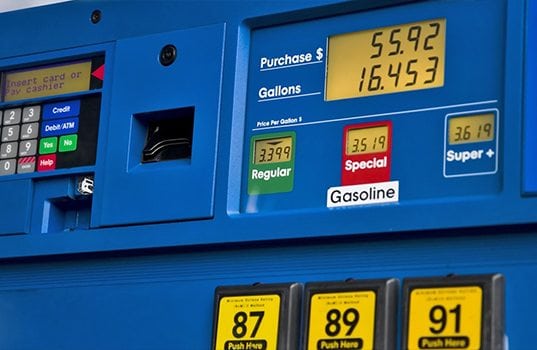With Gov. Tom Corbett’s (R-Pa.) signature on a comprehensive, five-year package, Pennsylvania has become the seventh state in 2013 where the governors and state legislators have come together to generate new revenues that will deliver important new transportation infrastructure improvements, the American Road & Transportation Builders Association (ARTBA) says.
“While Washington politicians bicker, governors and legislators from both parties are routinely demonstrating they can find common ground on how to deliver the resources necessary to support their state’s transportation infrastructure network,” ARTBA President Pete Ruane said. “Transportation investment should be viewed as an economic necessity, not a political wedge issue.”
According to ARTBA, other states taking action this year include:
- February 10: Wyoming enacted a 10-cents-per-gallon motor fuels tax increase that will generate $70 million per year;
- April: Vermont enacted a two percent sales tax on gasoline as well as a 0.8 cent decrease in the per gallon tax, and a two-cents per gallon diesel tax increase (phased in over 2 years) that will generate $28 million per year to support road and bridge improvements;
- May: Virginia delivered a five-year $3.4 billion transportation investment bill that, among other things, replaces the state’s gas tax with a sales tax on motor fuel;
- May: Maryland enacted a transportation gasoline/sales tax package that is projected to generate $830 million per year for road and public transportation improvements;
- July: Massachusetts legislators in July overrode a veto from Governor Deval Patrick(D) to enact a three-cents –per-gallon gasoline tax increase as part of an $800 million transportation bill (Patrick had wanted an even more ambitious plan); and
- August: The Texas legislature approved a measure that would redirect $1.2 billion annually in oil and gas revenue from the state’s general Rainy Day Fund to support transportation improvements (the proposal must still be approved by Texas voters in 2014).
Voters Nov. 5 also confirmed the high value they place on transportation infrastructure improvements when they approved 86% percent of the proposed ballot measures to increase or extend funding for highways, bridges and transit, the association says. There were 29 ballot initiatives at the state and local level, the largest number in a decade for a year that did not include congressional races or a presidential election, the group says. The total value of the approved measures was nearly $716 million, according to the association; on average, the ballot measures were approved with 65 percent of the vote.
“States, through the actions of their elected leaders and the votes of their citizens on transportation-related ballot initiatives, continue to show the American people see the ability to efficiently move people and product as a critical priority for their own quality of life and the strength of the U.S. economy,” Ruane said. “It is time for Congress to show that it has received the message.”
ARTBA noted the clock is ticking for Congress and the Obama Administration to take similarly bold action to address national highway, bridge and transit investment needs. On October 1, 2014, without any new revenues, the federal Highway Trust Fund (HTF) will not be able to support surface transportation capital investments to the states, the group says.
Over the past 10 years, the federal investment through the HTF, has supported nearly 52 percent of all road and bridge capital improvements performed across the nation. While the level of reliance on federal resources varies by state, a number of states depend on federal investment for more than 70 percent of these critical activities.
“While each and every one of these distinct state actions are warranted and commendable, states cannot expect to bear this burden alone,” Ruane said. “The U.S. economy needs a seamless national surface transportation network to ensure economic competitiveness in the global marketplace. That can only happen if Congress and the President work together on a bipartisan basis and fix the Highway Trust Fund as soon as possible in 2014.”
Established in 1902, ARTBA is the “consensus voice” of the U.S. transportation design and construction industry before Congress, the White House, federal agencies, news media and general public.








